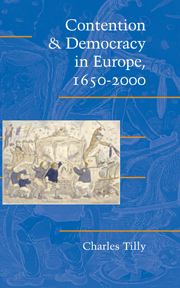1 - CONTENTION AND DEMOCRACY
Published online by Cambridge University Press: 29 May 2010
Summary
Unlike its 20th-century counterparts, the Leeds Mercury for 30 March 1871 devoted its opening pages entirely to classified advertising, official announcements, and market reports. But by page 4, as usual, the newspaper had plunged into the day's urgent political affairs. “The result of the Paris elections,” declared the Mercury's editorial writer,
gives such authority to the Commune as may be assumed to flow from an illegal proceeding to condone a revolt. It is simply, however, the authority of usurpation based upon the vote of a minority, the majority abstaining from the exercise of their rights, and so far giving a colourable sanction to acts which they had not the courage to protest against or to oppose. The victory has been won, as such victories too often are won, by the unscrupulous exercise of power in the name of liberty. For the moment, the Party of Disorder, of Anarchy, of Revolution, and of Tyranny have triumphed, and it may be that with the phrases of liberty, equality, and fraternity on their lips, they will for a time hold their own by a Reign of terror which will once more and for another generation make French Republicanism a bye-word and a scorn in the mouths of all men.
The Mercury's editorialist intertwined three themes commonly voiced by 19th- and 20th-century commentators on France, emphatically including British and French antirevolutionaries: comparison of current struggles with the revolution of 1789, association of revolution with terror, and assertion that if a revolution occurred, it could not possibly have represented the majority will.
- Type
- Chapter
- Information
- Contention and Democracy in Europe, 1650–2000 , pp. 1 - 41Publisher: Cambridge University PressPrint publication year: 2003

